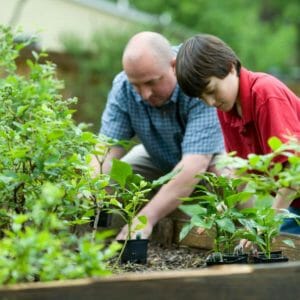
At first glance, gardening may seem like just a bunch of plants, but upon further inspection, it has enormous impacts on people and their well-being. The recently published article, Gardening for Food Well-Being in the COVID-19 Era, was based on a study done by Estève Giraud, Sara El-Sayed, and Adenike Opejin. The trio looked into the impacts of gardening on well-being in schools, related to COVID-19 and food justice. To assess the relationship between gardening and these variables, they conducted three studies that built on each other. These studies took place between 2018-2021 with the pandemic becoming an added factor. The group concluded that gardening has significant impacts on a child’s hedonic well-being which is associated with a sense of pleasure and positive emotions. Children in the study enjoyed the pleasures of being outdoors, tasting fresh produce, and interacting with their peers and teachers. Additionally, gardening had an impact on the eudemonic well-being of teachers which is associated with a sense of fulfillment and purpose in life. Gardening with their students gave them a sense of purpose.
I recently spoke with Estève Giraud to further discuss some of the concepts in her study. I asked her if gardening could be a tool to transform school systems and if gardening would continue to prevail despite people going back to work. She reported that “a lot of teachers don’t know much about gardening so they feel very uncomfortable in the situation. So for gardens to work in schools it requires breaking boundaries that are not easy to break.” Gardening has a wealth of benefits, but due to a lack of large-scale knowledge on the topic, it would be difficult to create gardens at schools statewide. When discussing if gardens would continue to thrive despite people not having as much free-time as they did during the start of the pandemic, Giraud seemed hopeful. She thinks that the connection between humans and nature is very deep and that it is not likely to go away even if people are busy. Taking that time to garden and be connected to nature is important for well-being.
Photo source: Unsplash